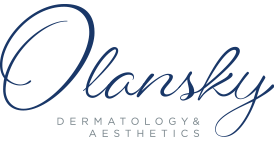There are many benefits to eating healthy, from providing essential energy and nutrients, to warding off disease. Researchers are still learning how a nutritious diet fosters skin, hair, and nail health, but registered dietician Nicole Hopsecger asserts: “Your skin is a reflection of your overall health… [I]f you are healthy on the inside, you will be healthy on the outside, too — skin and all.”
Because we believe it is important to understand how your diet affects your skin, we’re here to share how what you eat can keep your skin healthy too!
Wrinkles
Skin wrinkling is a natural part of the aging process, but using sunscreen, not smoking, and maintaining a healthy diet can slow the aging process.
Protein peptides and fatty acids, for example, strengthen the skin’s metabolism and antioxidant activity. The right nutrients can stop your skin from breaking down and keep it strong.
Limiting sugar and carbohydrates is also beneficial, as these foods can damage your skin’s collagen. Too much sugar in a diet also enables the production of an aging culprit known as advanced glycation end products (AGEs) — oxidant stressors which form when fat or protein combines with sugars.
Acne
Researchers are still learning how diet specifically affects acne, but many dermatologists agree that diet plays a role in its development and prevention.
Acne occurs when new skin cells grow abnormally, blocking pores and trapping natural oils under the surface. Bacteria feed on those oils, resulting in acne blemishes. A diet limited in processed foods and excess fat may help skin cells grow healthily, and without the problems that can lead to acne breakouts
Research also shows that individuals with acne are 54% more likely to have consumed high-fat, high-sugar diets, over individuals who have never had acne. Fatty foods like dairy and meat — as well as sugary foods and drinks — also promote inflammation, which has been connected to acne breakouts.
Chronic Conditions
Nutrition plays a role in many other chronic skin conditions. For example:
- Skin Dryness can be worsened with a high-fat, high-sugar diet, along with alcohol consumption and smoking. You can prevent dry skin by eating foods that are high in water content (like fruits and vegetables) and elevating your fluid intake.
- Eczema can be triggered by allergies in some individuals, so eating foods with anti-inflammatory properties can help reduce these skin symptoms.
- Rosacea may be triggered by alcohol consumption, spicy foods, or hot drinks. Avoiding these may reduce the frequency and severity of flare-ups.
Best Ways To Care for Your Skin
Though diet is not a standalone cure for skin conditions, being sure to consume plenty of antioxidants and anti-inflammatory foods may help boost skin health in combination with hydration, hygiene, and skincare routines. Consider including one or more of these foods into your diet, and take note of any changes:
- Yellow/orange/red fruits and vegetables
- Leafy greens
- Berries
- Tomatoes
- Beans and nuts
- Fatty fish
Olansky Dermatology can help you find your path to healthier skin. Our expert dermatologists will take note of your skin conditions, and provide you with your next steps — whether that’s a new skincare routine or dietary changes! To schedule an appointment with greater Atlanta’s premier dermatology practice, you can visit us online, or give us a call at (404) 355-5484.


